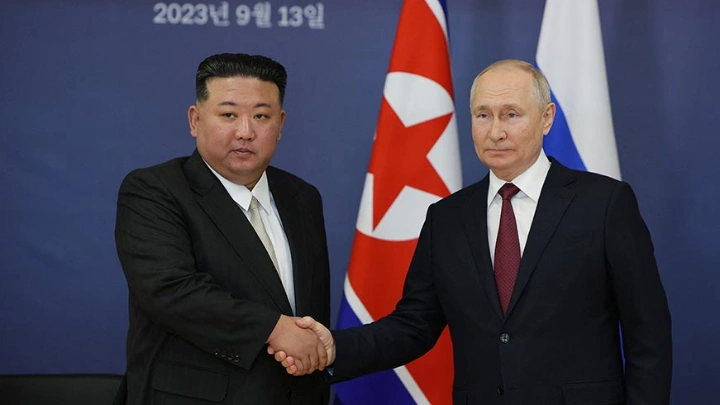Ukrainian President Volodymyr Zelenskyy's remarks on the presence of North Korean troops in its temporarily occupied territories have caught international attention, raising concerns about the state of deepening ties between Russia and North Korea. Following the announcement, the South Korean President called for an urgent national security meeting, after which South Korean intelligence agencies confirmed that they believed that North Korea had sent their troops. However, both, Russia and North Korea have refuted these claims.
The South Korean President called for an urgent national security meeting, after which South Korean intelligence agencies confirmed that they believed that North Korea had sent their troops.
Nonetheless, if proven to be true, this would be considered a drastic step up in their bilateral ties since the signing of the Treaty of Comprehensive Strategic Partnership in June this year. Following the Treaty, there was already a visible increase in high-level bilateral visits between Russia and North Korea, from ministerial to senior officials. Nevertheless, the pace at which their strategic ties had developed signalled North Korea and Russia were not shying away from openly supporting each other. The troop deployment will only validate the deepening of their ties, highlighting the importance of North Korea in Moscow’s strategic calculus and vice-versa.
Strengthening military cooperation
All this started with Russian President Vladimir Putin's meeting with Kim Jong Un this year to reinvigorate their bilateral ties. Following the meeting, the relations have progressed at an unprecedented pace. Thus, the North Korean troop deployment will only prove that both parties are not hesitating to display their support on the battlefield and in diplomatic avenues, as already seen.
However, this military bonhomie between the two countries started last year with the visit of Russian Defence Minister Sergei Shoigu, who attended the Weaponry Exhibition 2023 alongside Kim Jong Un, signifying the importance of arms exports in this relationship. Post his visit, the defence cooperation has increased drastically, benefiting both the Russian and North Korean military economies. Nonetheless, the initial dealings started in the first year of the Russian invasion, when North Korea supported Russia by exporting arms and ammunition. Since then, the exports of military equipment have continued unabated.




